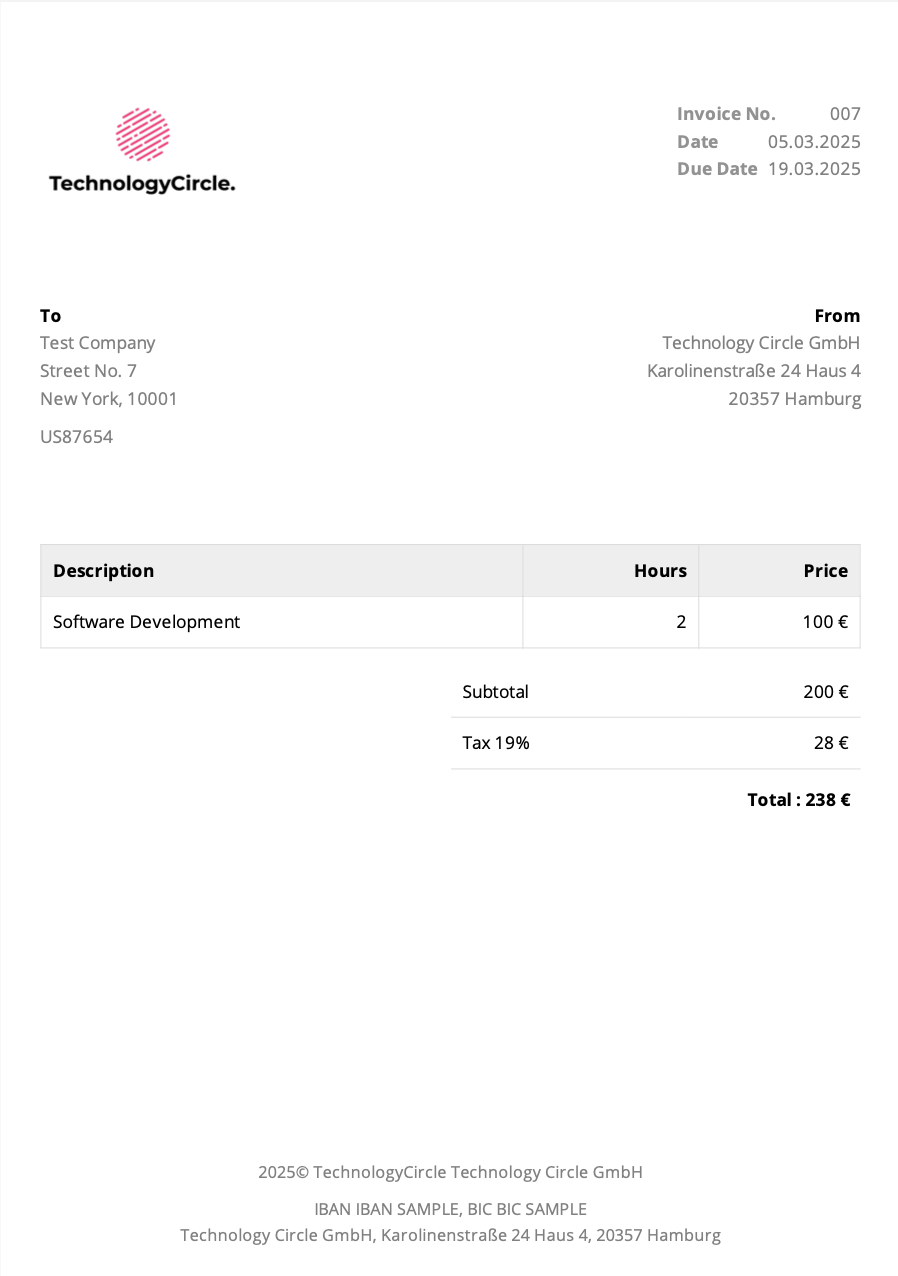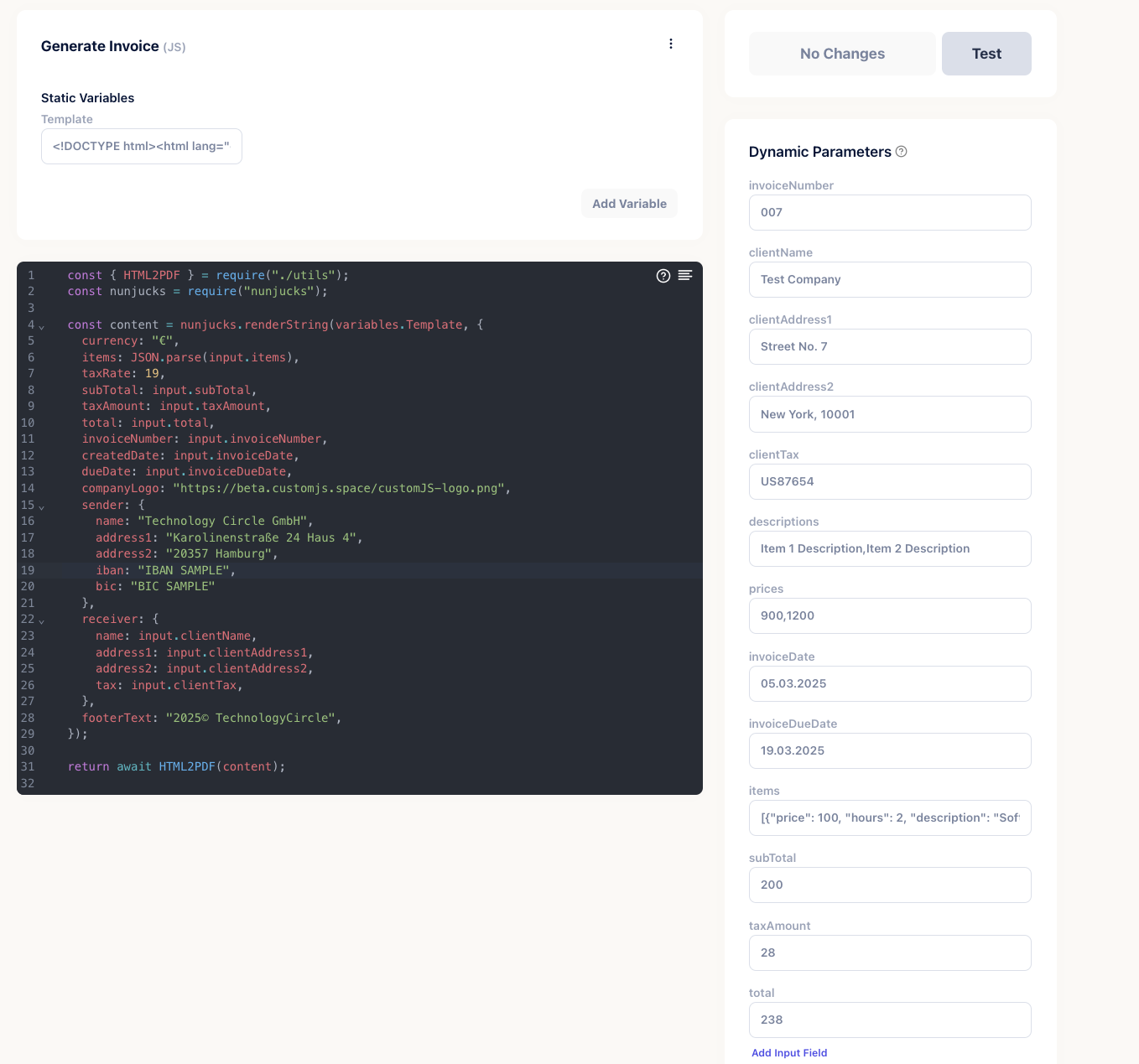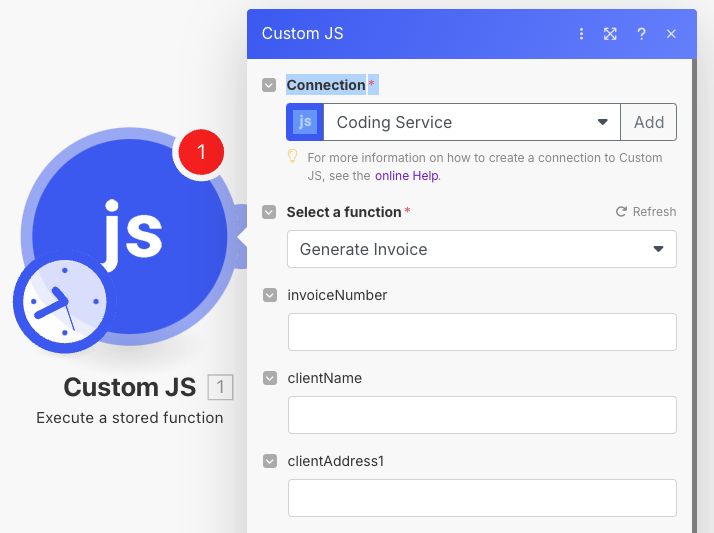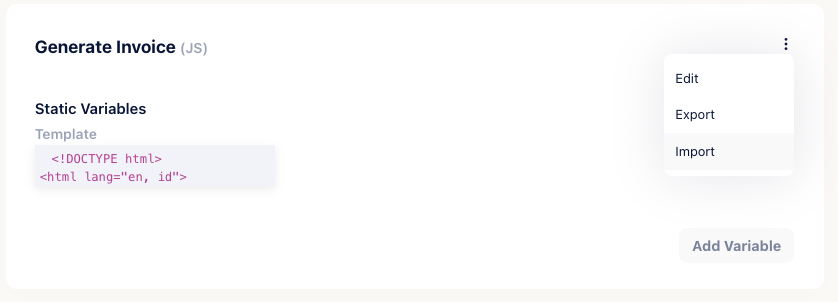Invoice PDF Generation
To do this, we have created some dynamic parameters on the right-hand side in the CustomJS platform. These parameters are inserted in the HTML template as variables and are replaced by the template engine Nunjucks during rendering.
The HTML template was created as a static variable with the type HTML so the CustomJS HTML editor can be used as you can see in the screenshot.

Workflow overview
Parameters — Define dynamic parameters in the CustomJS platform (these will also appear automatically as input fields in Make.com).
Template — Insert these parameters into an HTML invoice template, which is rendered with the Nunjucks templating engine.
Storage/Editing — Store the template as a static HTML variable, so you can edit it in the CustomJS HTML editor.
Output — Generate the final output as a PDF, which you can use in Make.com or trigger externally via the CustomJS API.
JavaScript code
The following script replaces variables in the HTML template with Nunjucks and generates the PDF.
const { HTML2PDF } = require("./utils");
const nunjucks = require("nunjucks");
const content = nunjucks.renderString(variables.Template, {
currency: "€",
items: JSON.parse(input.items),
taxRate: 19,
subTotal: input.subTotal,
taxAmount: input.taxAmount,
total: input.total,
invoiceNumber: input.invoiceNumber,
createdDate: input.invoiceDate,
dueDate: input.invoiceDueDate,
companyLogo: "https://beta.customjs.space/customJS-logo.png",
sender: {
name: "Technology Circle GmbH",
address1: "Karolinenstraße 24 Haus 4",
address2: "20357 Hamburg",
iban: "IBAN SAMPLE",
bic: "BIC SAMPLE"
},
receiver: {
name: input.clientName,
address1: input.clientAddress1,
address2: input.clientAddress2,
tax: input.clientTax,
},
footerText: "2025© TechnologyCircle",
});
return await HTML2PDF(content);
You can optionally set a custom page size (in millimeters). If you omit both, the default is A4 (210×297mm).
return await HTML2PDF(content, { pdfWidthMm: 210, pdfHeightMm: 297 });
CustomJS platform
Here’s how the full function looks inside CustomJS.

Use in Make.com
The dynamic parameters automatically appear as input fields in Make.com

HTML template
This is the HTML code of the Invoices. You can find the import code in the invoice.html.
Import code
